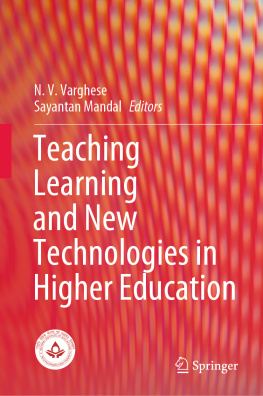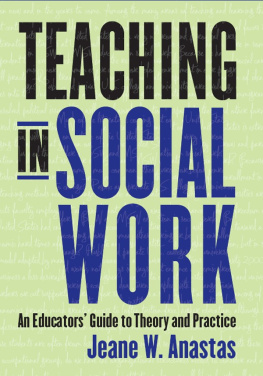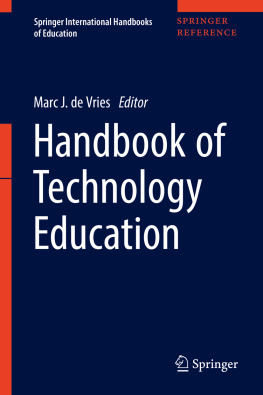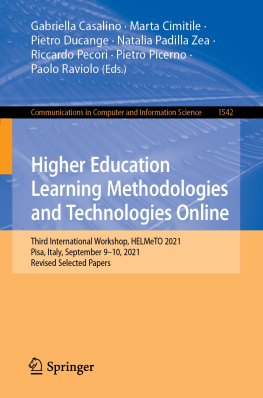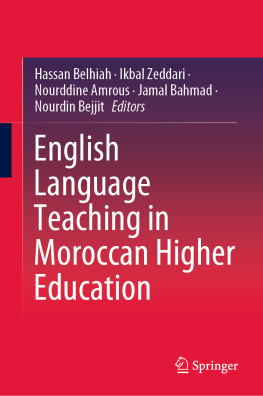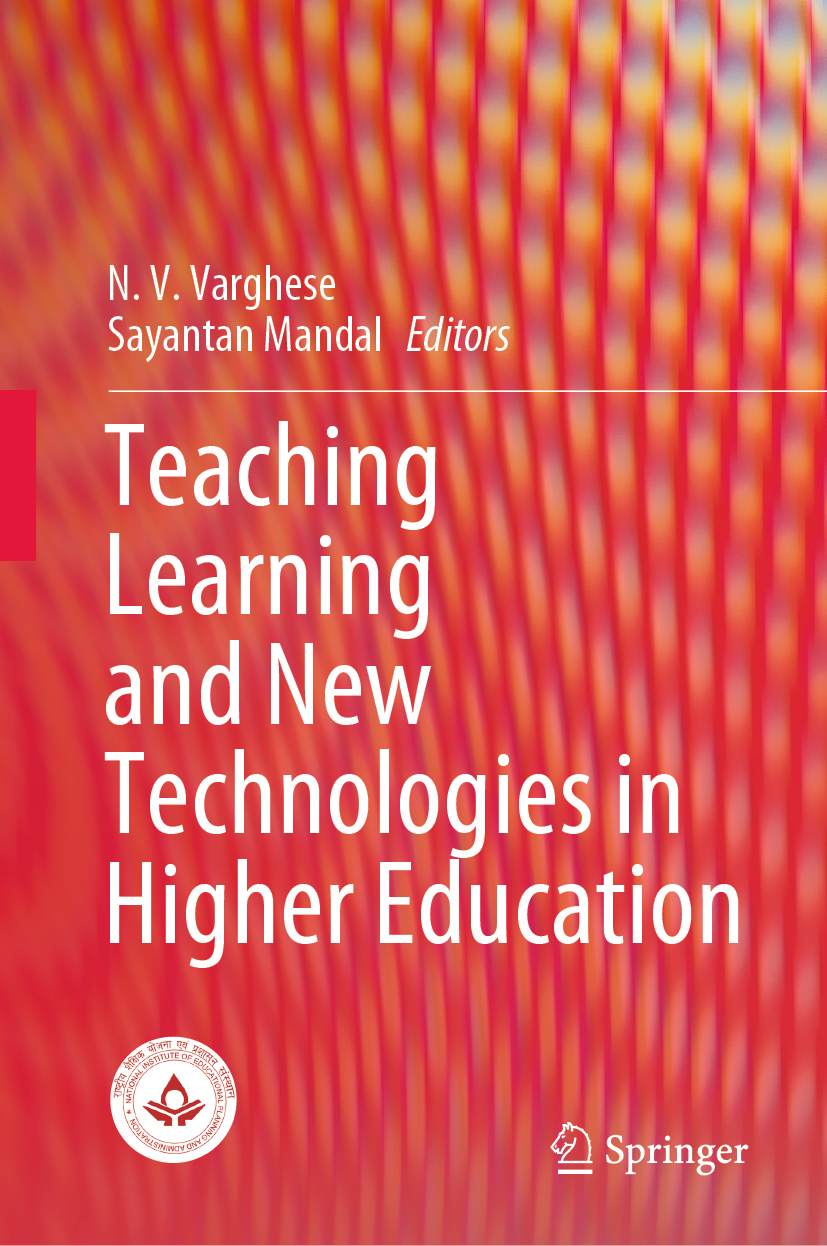Editors
N. V. Varghese
National Institute of Educational Planning and Administration (NIEPA), New Delhi, Delhi, India
Sayantan Mandal
Department of Humanities and Social Sciences, Indian Institute of Technology Jammu (IIT Jammu), Jammu, Jammu and Kashmir, India
ISBN 978-981-15-4846-8 e-ISBN 978-981-15-4847-5
https://doi.org/10.1007/978-981-15-4847-5
Springer Nature Singapore Pte Ltd. 2020
This work is subject to copyright. All rights are reserved by the Publisher, whether the whole or part of the material is concerned, specifically the rights of translation, reprinting, reuse of illustrations, recitation, broadcasting, reproduction on microfilms or in any other physical way, and transmission or information storage and retrieval, electronic adaptation, computer software, or by similar or dissimilar methodology now known or hereafter developed.
The use of general descriptive names, registered names, trademarks, service marks, etc. in this publication does not imply, even in the absence of a specific statement, that such names are exempt from the relevant protective laws and regulations and therefore free for general use.
The publisher, the authors and the editors are safe to assume that the advice and information in this book are believed to be true and accurate at the date of publication. Neither the publisher nor the authors or the editors give a warranty, expressed or implied, with respect to the material contained herein or for any errors or omissions that may have been made. The publisher remains neutral with regard to jurisdictional claims in published maps and institutional affiliations.
This Springer imprint is published by the registered company Springer Nature Singapore Pte Ltd.
The registered company address is: 152 Beach Road, #21-01/04 Gateway East, Singapore 189721, Singapore
Editors and Contributors
About the Editors
N. V. Varghese, Ph.D.
is a Vice Chancellor of the National Institute of Educational Planning and Administration (NIEPA) and Director of the Centre for Policy Research in Higher Education (CPRHE) at NUEPA, New Delhi. He has been actively involved in educational planning at the federal and decentralized levels, and with the design and development of externally funded education projects in India, for many years. He has directed several research projects, and has published more than 20 books and research reports and nearly 180 research papers and articles on educational planning, financing, and higher education.
Dr. Sayantan Mandal
is a senior Assistant Professor at the Department of Humanities and Social Sciences (HSS) in the Indian Institute of Technology Jammu (IIT Jammu). Previously, he has worked at the National Institute of Educational Planning and Administration (NIEPA), and at the University of Delhi, New Delhi, India. Dr. Mandal also worked at the UNESCO Institute for Lifelong Learning, Hamburg as an intern and has several years of working experience in the NGO sector, focusing on educational development. He has graduated from the Aarhus University, Denmark; has done his PhD, with Cum Laude, from the University of Deusto, Spain. He has published in several journals and presented papers at national and international conferences, especially on teaching and learning in higher education.
Contributors
Nopraenue S. Dhirathiti
Mahidol University, Nakhon Pathom, Thailand
S. Gopinathan
The HEAD Foundation, Singapore, Singapore
Mona Khare
NIEPA, New Delhi, India
Angela Siew-Hoong Lee
Sunway University, Bandar Sunway, Malaysia
Hoe Yeong Loke
The HEAD Foundation, Singapore, Singapore
Sayantan Mandal
Department of Humanities and Social Sciences, Indian Institute of Technology Jammu (IIT Jammu), Jammu, Jammu and Kashmir, India
Uma Natarajan
National Institute of Education, Singapore, Singapore
Don Passey
Lancaster University, Lancaster, UK
Saemah Rahman
Universiti Kebangsaan Malaysia, Selangor, Malaysia
Neeru Snehi
National Institute of Educational Planning and Administration, New Delhi, India
Thomas J. Sork
University of British Columbia, Vancouver, Canada
William G. Tierney
University of Southern California, Los Angeles, USA
N. V. Varghese
NIEPA, New Delhi, India
Bjarne Wahlgren
Aarhus University, Copenhagen, Denmark
Richard Walker
University of York, York, UK
Supachai Yavaprabhas
Chulalongkorn University, Bangkok, Thailand
Springer Nature Singapore Pte Ltd. 2020
N. V. Varghese, S. Mandal (eds.) Teaching Learning and New Technologies in Higher Education https://doi.org/10.1007/978-981-15-4847-5_1
1. TeachingLearning and New Technologies in Higher Education: An Introduction
N. V. Varghese
(1)
NIEPA, New Delhi, India
(2)
Department of Humanities and Social Sciences, Indian Institute of Technology Jammu (IIT Jammu), Jammu, Jammu and Kashmir, India
Abstract
Understanding teaching, learning, and the use of technology in improving, facilitating the process require in-depth understanding of the issue, which also helps investigating it with references of different contexts and from various standpoints. One of the important global trends in higher education in this century is the intensification of competition for reputation and the institutional reputation is based on the perceived quality of education imparted by higher education institutions. Modern digital technologies and widespread information have also added another dimension to this. And as a result, teachers are no longer seen as knowledge providers but more like mentors and facilitators of learning. Students also require to process, analyze, and make use of the information available, rather than to memorize it. Realizing these, the majority of developed nations have taken steps to revamp teachinglearning and integrate technology with the process in a coherent manner. In developing countries, including India, it is gradually becoming an emerging area of research. This chapter argues that there is a serious need to focus on the teaching processes, device robust feedback mechanism from different stakeholders, and continuous analytical insights to understand the changing needs before suggesting reform measures. There is also a need to re-examine faculty development. It should evolve to incorporate the new technological developments and use them effectively to facilitate learning. These reforms require a series of innovative and well-calibrated steps, and as of now, there is no single successful model, which stands out from the rest. Experimentations are going on all over the world to find suitable context-specific solutions.

